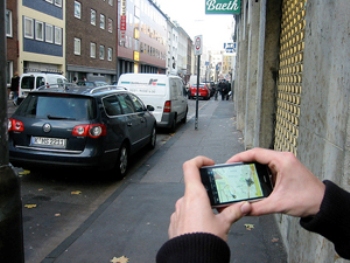Evasive or false answers given while filling out personality and health quizzes are going to be a thing of the past with new developments such as tablet devices and smartphones that would revolutionize digital magazines’ editorial content and advertising, leading to new and better methods of serving readers and authoring content.
 Smartphone Sensors iphone-location
Smartphone Sensors iphone-location
Most consumers are using location sensing services such as GPS features on smartphones to locate nearby businesses, and some media applications and magazines have successfully integrated location based features, which would give out content relevant to a user’s local area or region.
However, according to Wayne Chavez, Freescale’s Operations Manager, there is a lot of room for improvement for location based services. The improved location sensors would be able to combine both magnetometer readings and GPS data for determining the orientation of the device and the user’s direction. This would allow for advanced customization of information.
Joseph J. Esposito, who is an independent media consultant, revealed that the editorial content of magazines could be altered dynamically to reflect more comprehensive location data. He stated that if a person is reading a future edition of the New Yorker, about a story of a couple who falls in love in New York, and if the person who reads it just walked in front of a Mexican restaurant, the story would change and get updated to the reader’s location and activity.
Chavez further suggested that contextual advertising, which is based on location, could be improved for digital magazines and other applications by combining location data with online compilation of user information (the Cloud) for obtaining more precise targeting.
Esposito commented that people who use sensor equipped mobile devices would serve as passive authors, who could collect, study and present information from the sensors and this is termed as sensor publishing. He stated that all types of sensors could be integrated eventually into mobile devices, leading to data-gathering, which would both create and enhance digital magazine content.
Carré Technologies is in the process of developing health sensors, which could be integrated into clothing and these would interact with mobiles for both collection and analysis of health information.
Pierre-Alexander Fournier, Carré’s President, stated that this would be a great help to preventive health care. Such sensors would be useful in health applications such as biofeedbacks, games, and health observation. These sensors when worn would gather and amass a huge amount of data 24/7.